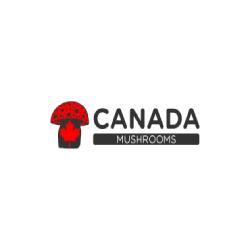Why MDMA-Assisted Therapy Has Gone Mainstream
Body
The medicinal usage of 4-methylenedioxymethamphetamine (MDMA) has recently been a hot topic as people debate whether or not it will be approved as a legitimate drug by the FDA. This drug, also known as Molly, directly affects brain neurotransmitters. It subsequently binds to presynaptic serotonin transporters and produces its actions. Which impacts are long-term or short-term?
However, the use of the substance has been shown to promote general well-being, facilitate conversation, improve self-confidence, and lower user anxiety, to name a few benefits. As beneficial as it is, its effect when the user is not adequately managed is negative; it causes dehydration, sleeplessness, overheating, a jump in blood pressure, and so on. It affects the fetus when used by a pregnant woman.
However, most medical studies on psychedelics have focused on two drugs: psilocybin, the main element in magic mushrooms, and MDMA, also known as ecstasy or Molly. LSD, mescaline, DMT, and other psychedelics are also being studied.
Click here to buy MDMA.
Furthermore, the medicinal effect of this medicine overcomes the advertising effect if users adhere to correct usage and do not abuse it. Microdosing has proven to be the most successful method of maximizing the therapeutic use of psychedelic substances while minimizing their adverse effects. Would the Food and Medicine Administration (FDA) approve this drug for its medical benefit while ignoring the advertisement effect? Molly is commonly referred to as a party drug due to the euphoric effect on users. Let’s see how effective MDMA therapy is.
What is MDMA Therapy?
MDMA-assisted psychotherapy is an experimental kind of psychotherapy. In a therapy setting, a trained professional administers pharmaceutical-grade MDMA to a patient, guiding the patient by asking questions about what they are experiencing and assisting the patient in asking questions of themselves. According to Sisley, the psychoactive substance functions as a conduit, allowing “the patient’s inner healer to take hold.”
“MDMA catalyzes some patients to go farther than they ever could in standard cognitive behavioral therapy,” Sisley says. Some people may compare it to receiving 20 years of traditional talk therapy in four months. […] According to studies, it helps [patients] to extensively explore traumas in a safe, trustworthy setting developed inside the traditional therapeutic process.”
A 2021 study published in Nature Medicine examined 91 persons suffering from severe, chronic PTSD. Half of them received MDMA-assisted therapy, while others received a placebo. Almost 90% of those who received MDMA saw a “clinically substantial” reduction in symptoms, and 67% no longer had PTSD.
Compared to typical talk therapy, 30 percent of people discontinue treatment, and only about 40 percent recover sufficiently to no longer have PTSD. Compare that to other FDA-approved PTSD medications, which only help reduce symptoms around 25% of the time.
A Long, Strange Trip: Psychedelics Meet Mainstream Medicine
The term “psychedelic” literally means “mind-revealing,” which is one way to characterize the potent effects of psychedelic drugs. It is also called hallucinogens or entheogens. They produce a dramatic alteration in your self-awareness and consciousness. However, drugs such as alcohol, cocaine, and opioids tend to have such effects. What distinguishes psychedelics?
It is “their consistent ability to create states of altered perception, thought, and sensation that is not normally encountered save in dreams or during times of religious exaltation.” Meditation, fasting, deep breathing, and other disciplines may result in “religious exaltation,” not limited to traditional religious practice.
Resource Blog : https://www.canadamushrooms.ca/why-mdma-assisted-therapy-has-gone-mainstream/












Comments